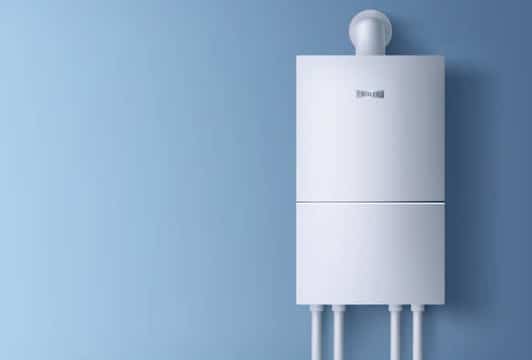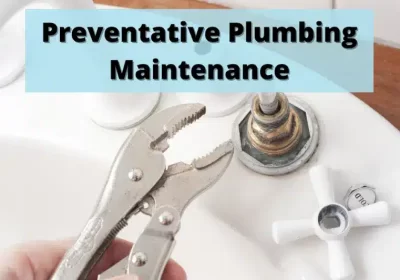The future of plumbing – latest technical innovations

Plumbing is an essential aspect of modern society, providing clean water supply and efficient waste removal. Over the years, advancements in technology have revolutionized the plumbing industry, making it more efficient, sustainable, and convenient. In this article, we will explore the latest technical innovations that are shaping the future of plumbing.
Smart Plumbing Systems
One of the most significant advancements in plumbing is the introduction of smart plumbing systems. These systems utilize sensors, automation, and connectivity to enhance efficiency and reduce water waste. Smart faucets, for example, use motion sensors to detect when hands are present and automatically turn on and off, reducing water consumption. Additionally, smart water meters allow homeowners and plumbers to monitor water usage in real-time, enabling better management and early detection of leaks.
Water-Saving Fixtures
Water scarcity is a pressing issue in many parts of the world. To address this challenge, plumbing manufacturers are developing innovative fixtures that conserve water without compromising performance. Low-flow toilets, for instance, use improved flushing mechanisms and design to achieve efficient waste removal while using significantly less water. Similarly, low-flow showerheads and faucets incorporate aerators and flow restrictors to maintain adequate water pressure while reducing water usage.
Water Filtration and Purification Systems
With increasing concerns about water quality, plumbing innovations have focused on improving water filtration and purification systems. Advanced filtration systems can remove contaminants, such as heavy metals, chlorine, and microorganisms, ensuring clean and safe drinking water. These systems can be integrated into faucets or installed at the point of entry for the entire house, providing comprehensive water purification solutions.
Pipe Inspection Technologies
Traditional methods of inspecting pipes involved invasive procedures and guesswork. However, technological advancements have led to the development of non-invasive pipe inspection technologies that offer accurate and efficient solutions. Video pipe inspection systems utilize small cameras attached to flexible cables, allowing plumbers to visually inspect the condition of pipes, identify blockages, leaks, or other issues without the need for extensive excavation.
Eco-Friendly Plumbing Materials
Sustainability has become a key focus in the plumbing industry. Manufacturers are developing eco-friendly plumbing materials that reduce the environmental impact of plumbing systems. For instance, the use of cross-linked polyethylene (PEX) pipes has gained popularity due to their durability, flexibility, and resistance to corrosion. PEX pipes also require fewer fittings, reducing the risk of leaks and improving water efficiency.
Remote Plumbing Monitoring and Maintenance
Plumbing innovations are leveraging the power of connectivity and remote monitoring to enable proactive maintenance and reduce emergency situations. Smart leak detection systems use sensors placed throughout the plumbing system to monitor water flow and detect any abnormalities. If a leak or unusual water usage is detected, the system can send alerts to homeowners or plumbers, allowing them to take immediate action and prevent further damage.
Water Heating Technologies
Water heating is an integral part of plumbing systems, and advancements in this area have focused on energy efficiency and convenience. Tankless water heaters have gained popularity due to their ability to provide hot water on demand, eliminating the need for a storage tank and reducing energy consumption. Heat pump water heaters are another innovative solution that extracts heat from the surrounding air to heat water, making them highly energy-efficient.
Furthermore, water heating technologies have also seen significant advancements. Traditional water heaters with storage tanks are being replaced by tankless water heaters that provide hot water on demand. These tankless systems eliminate the need for a large storage tank and reduce energy consumption. Additionally, heat pump water heaters are gaining popularity for their energy-efficient operation. By extracting heat from the surrounding air, these systems heat water while using less energy.
In conclusion, the future of plumbing is bright with the latest technical innovations. Smart plumbing systems, water-saving fixtures, advanced water filtration and purification systems, non-invasive pipe inspection technologies, eco-friendly materials, remote monitoring and maintenance, and efficient water heating technologies are all shaping the plumbing industry. These innovations offer increased efficiency, sustainability, and convenience while addressing water scarcity, water quality concerns, and infrastructure maintenance.
As technology continues to evolve, the plumbing industry will play a crucial role in meeting the challenges of a rapidly changing world. With a focus on efficiency, sustainability, and smart solutions, plumbing innovations will help conserve water, reduce energy consumption, and improve the overall performance of plumbing systems. The future holds great promise, and we can expect continued advancements that will revolutionize the way we manage water and plumbing in our homes and communities.
In addition to the advancements mentioned earlier, there are several other emerging technologies that are set to shape the future of plumbing.
Robotics and Automation
Robotic systems are being developed to assist with plumbing tasks that are typically challenging or time-consuming for humans. For example, robots can be used to navigate through narrow pipes, locate blockages, and perform repairs. These robots are equipped with cameras, sensors, and specialized tools to carry out tasks with precision. By utilizing robotics and automation, plumbing tasks can be completed more efficiently, reducing labor costs and minimizing disruption.
Augmented Reality (AR) and Virtual Reality (VR)
AR and VR technologies are finding applications in the plumbing industry as well. Plumbing technicians can use AR-enabled devices, such as smart glasses, to overlay digital information onto the real world. This allows them to access real-time instructions, diagrams, and troubleshooting guides while working on complex plumbing systems. VR technology, on the other hand, enables immersive training experiences, allowing plumbers to practice their skills in virtual environments before working on actual systems.
Nanotechnology
Nanotechnology is revolutionizing various industries, and plumbing is no exception. Nano-coatings and nano-filters are being developed to improve the performance and longevity of plumbing systems. Nano-coatings can be applied to pipes to enhance their resistance to corrosion, scale buildup, and microbial growth. Nano-filters, on the other hand, use tiny pores to remove impurities from water more effectively, ensuring cleaner and safer water supply.
3D Printing
The advent of 3D printing has opened up new possibilities in plumbing. Customized plumbing components, such as fittings, valves, and connectors, can be easily designed and printed on-demand, eliminating the need for large inventories and reducing waste. 3D printing also allows for the creation of complex and intricate designs that may improve the efficiency and functionality of plumbing systems.
Artificial Intelligence (AI)
AI technologies are being integrated into plumbing systems to optimize performance and enhance user experience. AI-powered algorithms can analyze water usage patterns, detect anomalies, and make predictive recommendations to improve water conservation and reduce costs. Smart irrigation systems, for example, can leverage AI to monitor weather conditions, soil moisture levels, and plant requirements to deliver the optimal amount of water for irrigation.
Internet of Things (IoT) Integration
The Internet of Things (IoT) is revolutionizing the way plumbing systems operate and are managed. IoT devices, such as smart sensors and actuators, can be installed throughout a plumbing system to monitor and control various parameters. For instance, sensors can detect leaks, abnormal water pressure, or temperature fluctuations, and send real-time notifications to homeowners or plumbers. Actuators can be used to automatically shut off water supply in case of emergencies or to regulate water flow for optimal efficiency. By integrating IoT technology, plumbing systems can become more intelligent, self-regulating, and capable of preventive maintenance.
Biodegradable and Sustainable Materials
In line with the growing emphasis on sustainability, the plumbing industry is exploring the use of biodegradable and sustainable materials. Traditional plumbing materials, such as PVC pipes, can have a significant environmental impact during manufacturing and disposal. However, new alternatives made from biodegradable plastics, recycled materials, or natural fibers are being developed. These materials not only reduce the ecological footprint of plumbing systems but also offer comparable performance and durability.
Energy Harvesting Systems
Energy harvesting systems are being explored to power various components of plumbing systems. By capturing and utilizing ambient energy sources such as sunlight, kinetic energy, or thermal gradients, these systems can reduce reliance on traditional power sources. For example, small-scale hydroelectric systems can generate electricity from the flow of water within pipes, which can be used to power sensors, valves, or other IoT devices. Energy harvesting not only increases the sustainability of plumbing systems but also reduces the need for battery replacements.
Blockchain Technology
Blockchain technology has the potential to transform various industries, including plumbing. In plumbing systems, blockchain can be utilized for secure and transparent transaction recording and verification. For instance, blockchain-based smart contracts can be used for tracking and verifying plumbing services, ensuring that all parties involved have access to accurate and tamper-proof records. Additionally, blockchain can enhance water management by enabling transparent and traceable water usage data, promoting efficiency and accountability.
Water Recycling and Reuse Systems
As water scarcity becomes a growing concern, the implementation of water recycling and reuse systems is gaining momentum. Greywater recycling systems can capture and treat water from showers, sinks, and laundry, making it suitable for non-potable uses such as irrigation or flushing toilets. Additionally, advanced water treatment technologies are being developed to treat wastewater from plumbing systems to a quality that meets or exceeds drinking water standards. These systems can help alleviate the strain on freshwater resources and promote sustainable water management.
Conclusion
The future of plumbing is an amalgamation of cutting-edge technologies that aim to make plumbing systems more efficient, sustainable, and intelligent. With advancements in robotics, AR/VR, nanotechnology, 3D printing, AI, IoT integration, sustainable materials, energy harvesting, blockchain, and water recycling systems, plumbing is set to undergo significant transformation.
These innovations not only address water conservation and quality concerns but also improve maintenance, minimize environmental impact, and enhance user experience. Plumbing systems of the future will be smart, interconnected, and capable of self-regulation, enabling homeowners and plumbers to monitor, manage, and optimize plumbing operations with ease.
By embracing these technical innovations and investing in research and development, the plumbing industry will continue to play a pivotal role in ensuring sustainable water management, improving infrastructure, and meeting the evolving needs of communities worldwide.
Article suggested by Refined Plumbing Sunshine Coast






